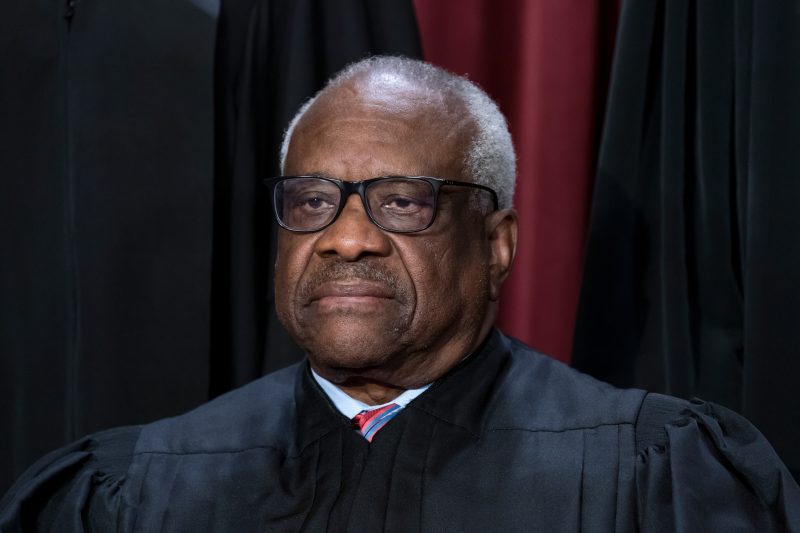Democratic Lawmakers Seek Criminal Investigation of Justice Thomas
The recent move by Democratic lawmakers to seek a criminal investigation of Supreme Court Justice Clarence Thomas has sparked intense debate and renewed focus on ethics within the judiciary. This unprecedented step follows allegations of potential conflicts of interest and improper conduct by Justice Thomas during his tenure on the Supreme Court. The lawmakers, led by Representative Ayanna Pressley and other members of the Congressional Black Caucus, have called for a comprehensive inquiry into Thomas’s actions and his wife’s ties to conservative organizations.
One of the key issues that have come under scrutiny is Justice Thomas’s failure to recuse himself from cases involving organizations that his wife, Virginia Ginni Thomas, has been affiliated with. Ginni Thomas has been actively involved in conservative political advocacy groups, raising concerns about potential conflicts of interest. The lawmakers argue that Justice Thomas’s participation in cases where his wife’s interests are at stake calls into question the integrity of his decisions and undermines public confidence in the Supreme Court.
Moreover, the allegations of misconduct against Justice Thomas go beyond conflicts of interest. Recent reports have surfaced suggesting that Ginni Thomas played a role in efforts to overturn the results of the 2020 presidential election, which culminated in the violent insurrection at the U.S. Capitol on January 6, 2021. These revelations have further fueled calls for a thorough investigation into the Thomas’s actions and their potential impact on the rule of law.
The decision to pursue a criminal investigation of a sitting Supreme Court justice is a bold and controversial move that has divided opinion along party lines. While supporters of the inquiry argue that it is essential to uphold ethical standards and accountability within the judiciary, critics caution against politicizing the Supreme Court and warn of the potential consequences of such a precedent. The outcome of this investigation could have far-reaching implications for the independence of the judiciary and the public’s trust in the highest court in the land.
In response to the growing pressure from lawmakers and the public, Justice Thomas has vehemently denied any wrongdoing and dismissed the allegations as politically motivated attacks. He has emphasized his commitment to upholding the rule of law and maintaining the impartiality of the judiciary. However, the gravity of the accusations against him raises serious questions about the ethical standards expected of Supreme Court justices and the mechanisms in place to hold them accountable for any breaches of conduct.
As the criminal investigation into Justice Thomas unfolds, the American public will be closely watching the proceedings and the eventual outcome. This unprecedented case has put a spotlight on the intricate intersection of politics, law, and ethics within the judicial system. The controversy surrounding Justice Thomas’s alleged misconduct serves as a stark reminder of the delicate balance that must be maintained to safeguard the integrity and credibility of the Supreme Court, as well as the broader principles of justice and democracy that underpin the American legal system.

